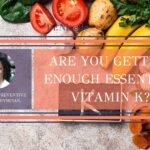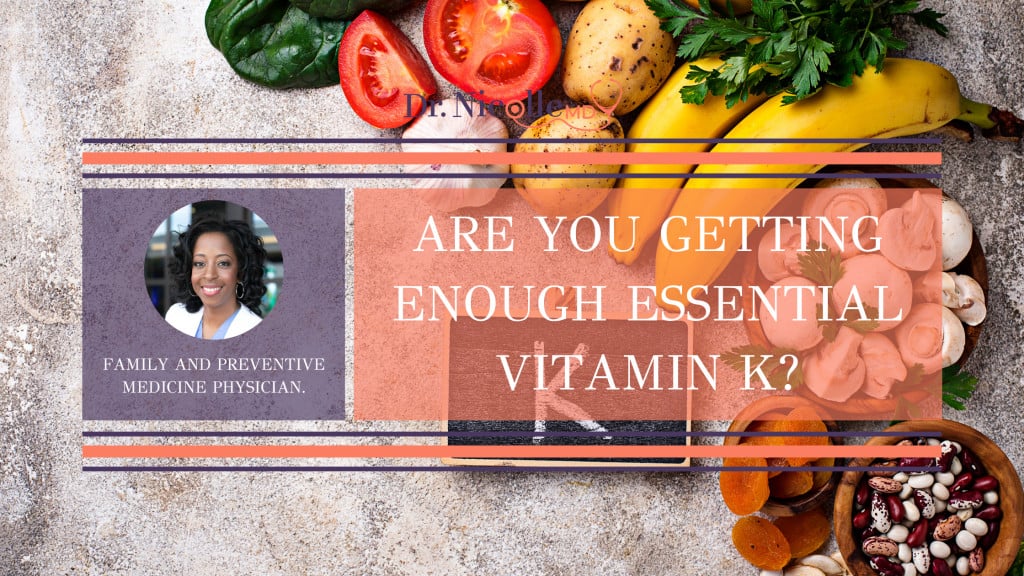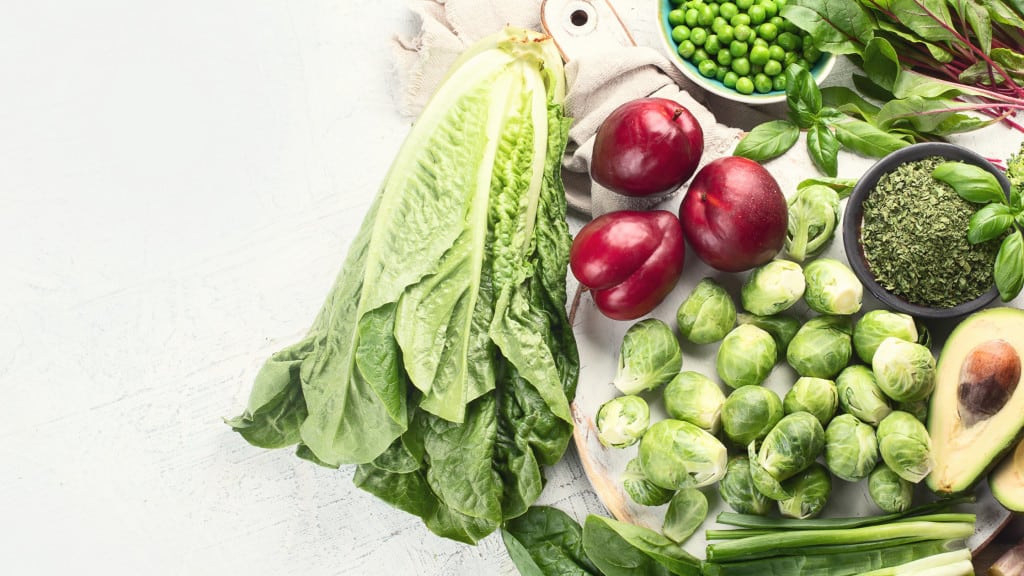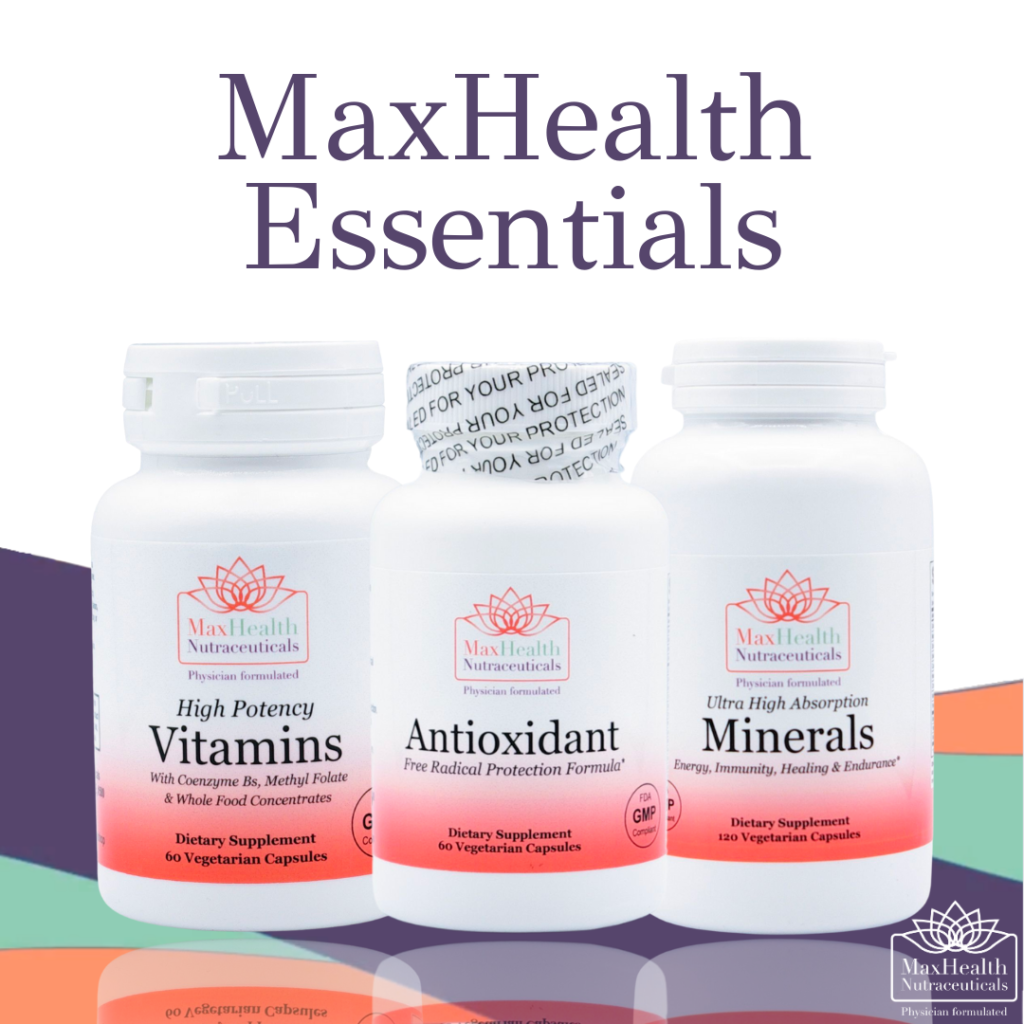

It’s Wellness Wednesdays! Let’s see if you are getting enough essential Vitamin K. Vitamin K is an essential nutrient that your body requires for optimal health. This vitamin is necessary for proper cell function and tissue healing.
Learn more about this important nutrient:
1. What is vitamin K?
Vitamin K is considered an essential vitamin that you can’t live without. Vitamin K supports these bodily processes:
- Blood clotting
- Balancing calcium levels in the body
- Maintaining blood vessels
- Bone health
2. How much vitamin K do you need?
The amount of vitamin K you require will depend on your age and gender.
- In general, it’s recommended that adult men have 120 micrograms (mcg) of this vitamin a day.
- Adult women should have 90 mcg of vitamin K a day.
- Teens should have 75 mcg of vitamin K a day, while younger children may need lower amounts.
3. Vitamin K diet sources.
Dark, leafy greens are the most common source of vitamin K. Kale, spinach, broccoli and other dark green vegetables tend to have large amounts of this vitamin.
- You can also find vitamin K in Swiss chard, romaine lettuce, turnip greens, collard greens, mustard greens, soy beans, cauliflower, green peas, and cabbage.
- Although vegetables tend to have a lot of this nutrient, they’re not the only source. You can also add beans, tuna, blueberries, and other foods to get more vitamin K in your diet.

4. Are you getting enough?
If you’re eating a healthy diet with many vegetables and fruits, you may have enough vitamin K. However, it’s not always easy to tell.
- A healthy diet tends to include enough vitamin K. For example, one cup of kale has more than the recommended daily value of vitamin K that an adult needs.
- Nevertheless, it’s possible you may not be getting enough. If you have digestive problems, malabsorption, or liver problems, it may be necessary to take supplements. Conditions such as cystic fibrosis, celiac disease, or Crohn’s disease can cause a vitamin K deficiency. In other cases, your medications can interfere with the absorption of this essential vitamin.
- If you think you might be short on this important nutrient, talk to a medical professional about your concerns. If you need to supplement your diet, there are many types of vitamins that include vitamin K. Choose one that works for you.
5. Special precautions.
If you take any type of blood thinners, it’s crucial to be careful with vitamin K. Blood thinners can interact with both food and supplements that contain large amounts of vitamin K.
- Talk about your medications with your physician and discuss how much vitamin K is in your diet and vitamin pills. You may need to make adjustments to avoid complications.
6. Symptoms of low vitamin K levels.
If you’re experiencing these symptoms, seek immediate medical care:
- First, you may have trouble after a small cut with the blood refusing to clot. Bleeding and blood clotting issues are common with this type of deficiency. You may experience internal digestive system bleeding, gum bleeding, nose bleeds, or other types of issues.
Talk to your doctor about vitamin K and ensure that you’re getting enough for optimal health. Always consult a medical professional before making drastic dietary changes or trying new supplements or pills.
I would love to give you a free resource sheet to support your overall wellness. Click the button below to receive your gift.
I really wanted to talk about this topic today because your natural health and wellness is important. You can adopt healthy lifestyle practices that improve your health, your environment, and enrich your life, which can in turn improve the lives of those close to you. You have the power to break the cycle of poor health, including chronic disease, so that you can leave a legacy of health to your loved ones.
I use functional medicine and lifestyle medicine as the first line of treatment, before medications, to treat lifestyle-related chronic diseases. Lifestyle-related chronic diseases include diabetes, hypertension, obesity, and some cancers, just to name a few. Lifestyle practices, such as eating a whole-food plant-based diet and regular physical activity, can help you lose weight, reverse some chronic diseases (if you suffer from them), and can even help you with detoxification. In certain cases, these approaches may even outperform pharmaceutical therapy.
But I always tell my patients that conventional medications may be appropriate at this time to prevent catastrophic illness, but over time, you can work to make the necessary lifestyle changes to possibly reduce and/or eliminate medications. Please remember to always consult your physician for your particular needs and circumstances prior to making any decisions whatsoever.
Is Dietary Supplementation Right For You?
For some people, vitamin and mineral supplements offer important health benefits. Supplements are designed to fight deficiencies found in our diet and complement the food we eat regularly. Supplements are basically “helping hands” to our daily food.
If you suspect that you aren’t getting the nutrients you need, consider shifting your focus from supplements to eating better.
But it is very important to note that we are not eating the same foods we ate years ago because the soils have been depleted of critical nutrients through current industrial farming practices. And because the soil is not as good as it used to be, the food supply (grown from the depleted soil) is not as good as it used to be. For example, you are not getting the same levels of magnesium as you would have gotten 30 or even 50 years ago.
Second, much of the food has been genetically altered, which can impact the inherent and unique nutritional composition that each food possess. For example, ancient einkorn wheat has less gluten, more protein, more Vitamin A, and more beta carotene, than modern genetically modified wheat.
Third, the toxic load in the environment today is much higher than 100 years ago. We can see this with global warming, toxic landfills, polluted oceans and waterways, etc. Toxicity levels interfere with nutrient assimilation and absorption not just into the foods, but into our bodies as well.
So… if you are unable to eat better, the supplements in my MaxHealth Essentials Bundle may provide the extra boost you need.
These are my favorite Wellness and Immune-Boosting Supplements to use! This MaxHealth Essentials Bundle will ensure you have the intake of the important vitamins, minerals, and antioxidants to decrease inflammation and boost your innate wellness day and night. Taken together, it’s a solid plan for increasing your body’s natural resiliency.
For best results make sure you use the supplements with dietary changes including a whole food plant-based diet, regular exercise (at least 2-3x per week), regular sleep (8 hours per night), and intermittent fasting (at least 1-3x per week).
Weight Monitoring
Since weight management is very important in combatting chronic diseases, I recommend that you be mindful of your weight and its fluctuations, and that you monitor your weight AT LEAST on a weekly basis. I recommend a scale that includes a body composition monitor (*this scale cannot be used with a pacemaker or other implanted devices).
Physical Activity
Physical activity (or exercise) can improve your health and reduce the risk of developing several chronic diseases like high blood pressure, type 2 diabetes, and cancer, just to name a few. Physical activity can improve your mood, boost your immune system, help you maintain a healthy weight, and is a great way to detox your body!
I often recommend yoga and resistance training for physical activity, but as you are aware, there are plenty of forms of “movement” that you can do! But for the basics, especially if you’re just getting started, yoga and resistance training are where I would start.
Yoga
Yoga can be a great way to improve your strength and flexibility, manage your stress, improve your heart health, and lose weight! I recommend using a grounded yoga mat to connect yourself with the earth and reduce inflammation.
Resistance Training
Resistance training is the mainstay for overall health. It not only has beneficial effects on reducing body fat, it also increases muscle size and strength. Check out some basic dumbbells/free weights that I recommend to everyone.
Another alternative for dumbbells/free weights are resistance bands. They are great for physical therapy, yoga, strength training, and excellent for traveling.
Remember, living a healthy lifestyle including eating a whole foods plant-based diet, regular physical activity, and reducing stress are the best ways to maintain a healthy weight. Let me know what you think in the comment section below.
Dr. Nicolle Martin
Some of the links in this article are "affiliate links", a link with a special tracking code. This means if you click on an affiliate link and purchase the item, we will receive an affiliate commission.
The price of the item is the same whether it is an affiliate link or not. Regardless, we only recommend products or services we believe will add value to our readers.
By using the affiliate links, you are helping support our Website, and we genuinely appreciate your support.
Last updated on December 14th, 2021 at 04:16 am

Minimize Medications. Maximize Health.
Are you super busy but need to take control of your health? Are you tired of being tired? Subscribe to my “Minimize Medications, Maximize Health Blog” and I’ll give you 7 Tips to Get Healthy in No Time absolutely FREE.






